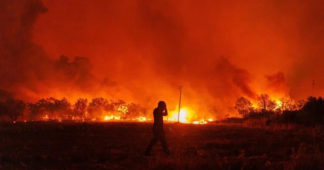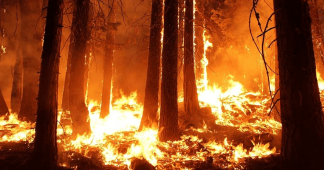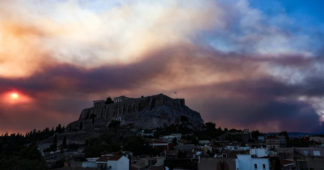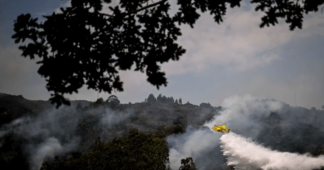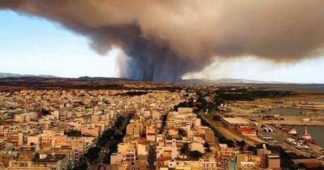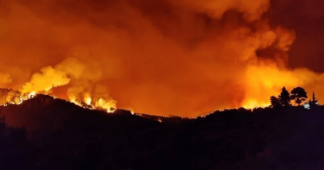Aug 23, 2023
Flames devoured forests and homes as dozens of wildfires raged across Greece Wednesday, leaving 20 people dead over the past three days, while major blazes burned in northwestern Turkey near the Greek border and on Tenerife in Spain’s Canary Islands. A major blaze on the northwestern fringe of Athens was torching homes and heading into Parnitha national park, one of the last green areas near the Greek capital. Associated Press photographer Achilleas Chiras captured the march of fire Wednesday through a forest near the village of Sykorrahi in the northeastern Evros region.
Here’s what else is happening related to extreme weather and the climate right now:
—In Pakistan, officials announced that rescuers have evacuated more than 100,000 people from flood-hit areas of eastern Punjab province in the past three weeks. Pakistani authorities are still struggling to overcome the damage caused by massive floods last summer that affected 33 million people and killed 1,739. They caused $30 billion in damage to the country’s economy.
—In the Caribbean, Tropical Storm Franklin made landfall Wednesday on the island of Hispaniola shared by the Dominican Republic and Haiti, dumping heavy rains expected to trigger landslides and flooding in both countries. Forecasters warned it could drop up to 12 inches (30 centimeters) of rain in the Dominican Republic and up to 4 inches (10 centimeters) in Haiti.
—In southwestern Switzerland, police warned Wednesday that a heat wave has increased the risk of falling rock and ice in the Alpine region, where it’s been particularly deadly this year for mountaineers and hikers. Most victims have been foreigners.
—A new study found climate change more than doubled chances of the hot, dry weather conditions that helped fuel unprecedented fires season in eastern Canada that drove thousands from their homes and blanketed parts of the U.S. with choking smoke. Human-caused climate change made the fire season in Quebec — from May through July — 50% more intense than it otherwise would have been, researchers said.
Continue reading at apnews.com
We remind our readers that publication of articles on our site does not mean that we agree with what is written. Our policy is to publish anything which we consider of interest, so as to assist our readers in forming their opinions. Sometimes we even publish articles with which we totally disagree, since we believe it is important for our readers to be informed on as wide a spectrum of views as possible.
